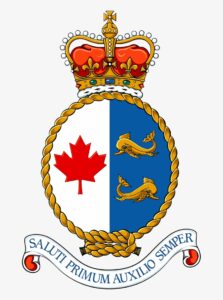
Fisheries and Oceans Canada has put out notice of $123 million earmarked to buy back Pacific salmon commercial fishing licenses from harvesters who want out of the industry. The effort would also help protect dwindling stocks of the fish.
The funds are part of a nearly $650 million Pacific Salmon Strategy Initiative announced by the government agency last year. The Canadian Press news agency reported in mid-December that 1,300 licenses would be eligible to participate in a deal that would purchase the licenses at market rate, then remove them from circulation.
While there is no way to know how many license owners will participate, the federal agency’s goal is to substantially reduce the size of the fleet. DFO plans multiple rounds of commercial license retirement, with the first round to assist license holders who have expressed the desire to leave the industry as quickly as possible. The application deadline is Feb. 28.
As of Dec. 20, the 2,025 licenses eligible included 1,277 commercial, 494 communal commercial and 254 Northern Native Fishing Corporation licenses eligible for the program.
There are a total of 85 active marine finfish licenses (for open-net pen farms) in British Columbia, of which 84 licenses were reissued this past June and expire on June 30, 2024. The one marine finfish license for Chinook in the Discovery Islands expires on Jan. 31, 2023.
According to Fisheries and Oceans, many salmon stocks are declining to historic lows, due to climate change, habitat loss and other adverse impacts on Pacific salmon.
The buyback plan came on the heels of a Department of Fisheries and Oceans announcement in late June of 2022 of plans for a two-year renewal of licenses for marine finfish aquaculture facilities outside of British Columbia’s Discovery Islands.
DFO officials noted in a news release the impact of that decision was part of a planned transition from open-net pen salmon aquaculture in British Columbia.
Canada’s Liberal Party and Canadian Prime Minister Justin Trudeau have called for a shift away from open-net pen fish farming by 2025. The publication SeafoodSource reported that DFO planned to share a draft framework for transitioning and that the plan would rely on input from the BC government, First Nations, industry, local governments, stakeholders and area residents, in consultations that would continue until early 2023.
DFO and Canadian Coast Guard spokesperson Joyce Murray said their decision to move away from open-net pen aquaculture is based directly on protecting the region’s wild salmon.
“Wild Pacific salmon are an iconic keystone species in British Columbia that are facing historic threats,” Murray said. “Our government is taking action to protect and return wild salmon to abundance and ensure Canada is a global leader in sustainable aquaculture.”
Ruth Salmon, interim executive director of the BC Salmon Farmers Association, called the license renewal plan an opportunity to work with all levels of government, including First Nations, to secure a future that will benefit Indigenous and non-Indigenous coastal communities, meet the global demand for healthy, affordable seafood, and support the continued protection and restoration of wild Pacific salmon.
